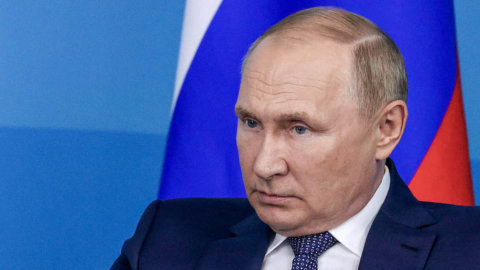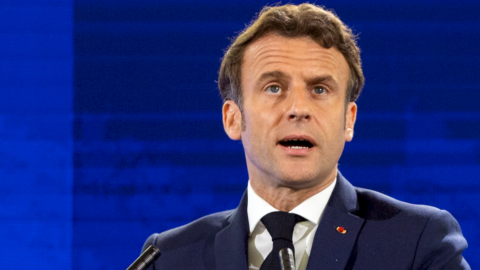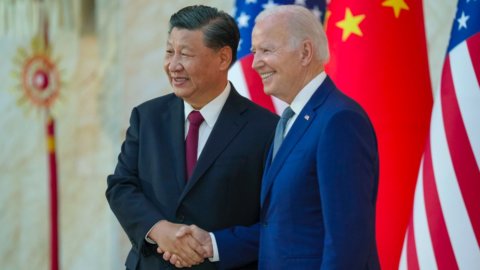A phone call was enough to shuffle the cards in the Fed house. Lawrence Summers, former Treasury secretary and Obama's trusted adviser, has abandoned the race for president of the Federal Reserve. He did so on Sunday morning by calling the president of the United States directly and, subsequently, with a letter in which he explained the reason for his decision: "I concluded, albeit reluctantly, that my confirmation would cause hatred and would not interests of the Fed, the government and, ultimately, the nation's economic recovery."
Summers, considered the first choice in the race to succeed Ben Bernanke, was opposed by several liberal exponents and women's rights groups, as well as some members of the Senate Banking Committee. This is due to his role during the financial crisis and to the policies he carried out when he was Treasury minister which, according to some, then contributed to the collapse of some banks in 2008.
After the twist, the pole position remains with Janet Yellen, current vice president of the Federal Reserve, who has managed to win the support of Democrats in Congress and economists. But her constant endorsements towards her seem to have annoyed the president - notes the Wall Street Journal - and could burn her candidacy.
The number one aspirants, in reality, are numerous. The government has already explored the availability of other strong names. Here is the complete list.
JANET YELLEN
Vice chairman of the Fed since October 2010, she is considered by the financial markets to be the main contender. Previously, she was the chair of the Council of Economic Advisers during the Clinton era (XNUMXs) and held various positions at the Federal Reserve, including governor.
An economics graduate from Yale and a student of Nobel Prize winner James Tobin, an adviser to Kennedy and Johnson in the White House, Yellen was an avid supporter of the Fed's "easy money policies". Her involvement in these operations could be to her advantage, given who knows how they work and how they can be changed. But there are also some weaknesses: lack of experience in the markets, particularly when they are nervous. She could become the first woman to lead the central bank -
TIMOTHY GEITHNER
Former Treasury Secretary Timothy Geithner was one of Obama's most trusted economic advisors and has a long experience at the Fed. He was the head of the central bank in New York during the financial crisis and was always close to Bernanke. He has a long list of contacts in the business world and, in particular, in foreign governments.
Some liberals consider him too close to Wall Street, an accusation he has always denied. Conservatives, on the other hand, are divided: some say he was too inclined to raise taxes, others are willing to work with him if necessary. Geithner, who specializes in international economics and East Asian studies, has however made it known that he is not interested in the succession.
ROGER FERGUSON
President and trustee of TIAA-CREF, the nonprofit organization that offers financial services and pensions in the academic, medical and cultural sectors, Ferguson is a Harvard law and economics graduate and was a Fed deputy during the presidency of Alan Greenspan.
He effectively headed the Federal Reserve during the 11/2 terrorist attacks while Greenspan was overseas. During his years at the central bank, he played a strong role in shaping the new Basel XNUMX rules for multinational banks. However, these rules were changed after the financial crisis, with concerns that banking had become too risky and threatened the financial sector. Ferguson has extensive experience with foreign financial institutions and regulators.
He would be the first African American to lead the Fed.
DONALD KOHN
A former Fed deputy, Kohn is currently a member of the Bank of England's financial policy committee. He was one of the central bank's key players during the financial crisis, serving as Bernanke's key advisor on critical decisions on interest rates, bailout programs and the collapse of giants such as Bern Stearns and Lehman Brothers. He left the Federal Reserve in 2010.
Previously, he was a long-term political adviser to Alan Greenspan. Kohn has come under criticism for his endorsement of low interest rates before the housing boom.
STANLEY FISCHER
Stanley Fischer, an internationally renowned academic, was chief economist at the World Bank and deputy managing director at the International Monetary Fund. He has recently resigned as head of the central bank of Israel. He arrived in Tel Aviv in 2005 when the economy was recovering from the recession. An American citizen born in what is now Zambia, he was the first non-Israeli to fill that role.
Central bankers around the world paid close attention to Fischer's moves during the financial crisis, especially his policies related to the money supply.
WILLIAM DUDLEY
William Dudley, a Berkeley economics graduate, headed the New York Fed's markets office during the crisis. He has been a proponent of aggressive monetary policies. Previously, Dudley was chief economist at Goldman Sachs.





